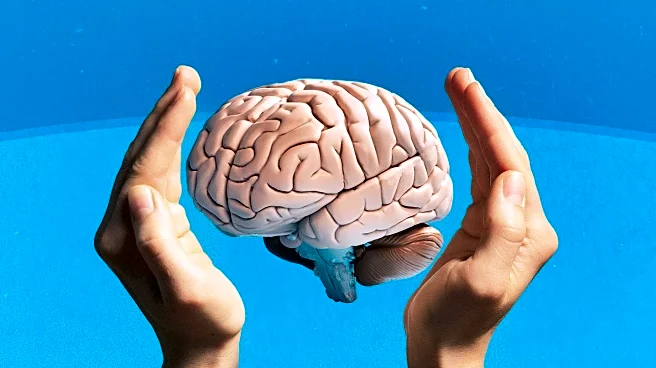What's Happening?
Schizophrenia is a chronic brain disorder affecting approximately 0.32% of the global population, characterized by symptoms such as psychosis, delusions, hallucinations, lack of motivation, and disorganized thinking and speech. The disorder typically begins between the ages of 15 and 25, often disrupting individuals before they reach their full potential. The condition is heavily stigmatized, with common misconceptions associating it with dissociative identity disorder. Schizophrenia is often misunderstood due to its name, which implies a 'split mind,' leading to confusion with other mental health disorders. The disorder is marked by severe social withdrawal and is often perceived as a threat, contributing to societal ostracization. Despite these challenges, schizophrenia can be managed with a combination of medications and therapies, although access to comprehensive care remains difficult.
Why It's Important?
Understanding schizophrenia is crucial for improving mental health treatment and reducing stigma. The disorder's impact on individuals and society is profound, affecting quality of life, life expectancy, and increasing disability rates. Misconceptions about schizophrenia can hinder recognition of its symptoms and delay treatment, exacerbating its effects. Addressing these misunderstandings can lead to better support systems and more effective interventions. The disorder's association with other mental health issues and its potential link to drug use, particularly cannabis, highlights the need for informed public health policies and education. As research continues, there is hope for more effective treatments with fewer side effects, improving outcomes for those affected.
What's Next?
Efforts to change the name of schizophrenia to reduce stigma and improve understanding are underway, with alternatives like 'altered perception syndrome' and 'psychosis spectrum syndrome' being considered. Continued research into the disorder's causes and risk factors, including genetic and neurodevelopmental aspects, is essential for developing better treatments. Public health initiatives aimed at educating the public about schizophrenia and its symptoms can help reduce stigma and encourage early intervention. As new medications and therapies are developed, there is potential for improved management of the disorder, offering hope for those affected and their families.
Beyond the Headlines
The societal perception of schizophrenia as a threat contributes to the isolation and marginalization of those affected. Changing this narrative requires a shift in how mental health disorders are viewed and treated. Ethical considerations in the treatment of schizophrenia, including the balance between medication adherence and patient autonomy, are critical. The disorder's impact on families and caregivers underscores the need for comprehensive support systems. Long-term shifts in mental health policy and public awareness can lead to more inclusive and compassionate approaches to treatment and care.









